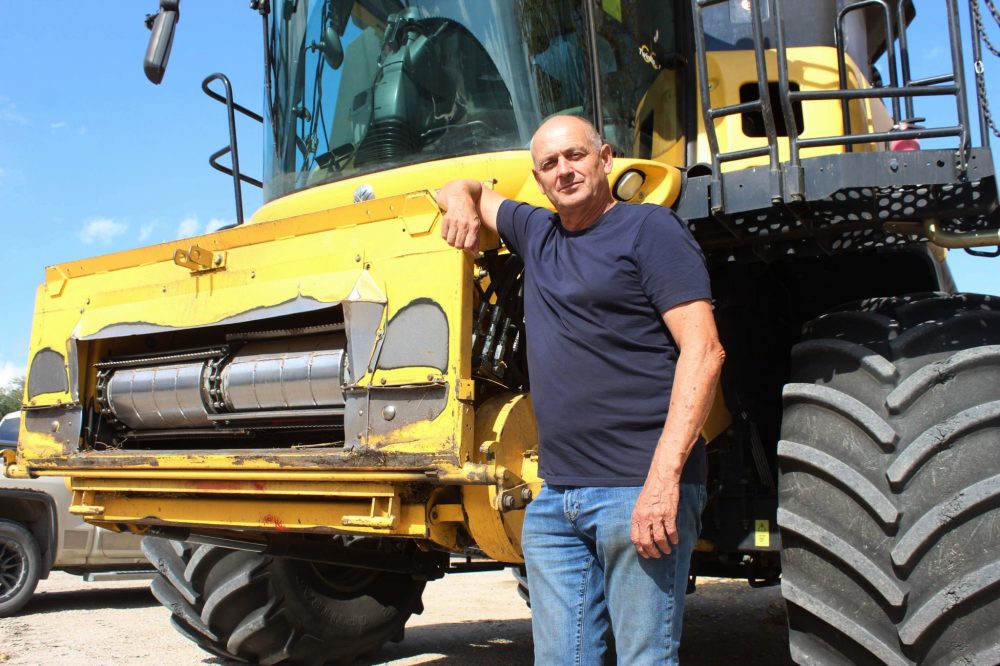Federal canola tariff bailout misses mark: Manitoba growers
Advertisement
Manitoba canola producers and advocates say federal tariff support measures, while welcomed, still fall short for helping the industry weather the instability caused by Chinese levies.
On Sept. 5, Prime Minister Mark Carney announced more than $370 million worth of tariff support measures for Canadian canola producers and new biofuel production incentives. The federal government will amend the Clean Fuel Regulations for a two year period so the biofuel industry can grow and become competitive, a press release said. The new measures also include increasing the loan limit for domestic canola producers to $500,000 and spending $75 million over five years to expand the federal AgriMarketing Program, which helps producers explore new countries and markets for their products.
Warren Ellis, chair of the Manitoba Canola Growers Association, sees domestic biofuel production as a means for providing stability to the canola market and developing environmentally clean fuel.

“We’re really hoping to get this biofuel marketing going because we really see is it as something with huge potential,” he said.
To grow the biofuel industry, financial incentives are helpful, but market stability is necessary to bring investment into the country and province, Ellis said.
While increasing the loan amount may sound “impressive,” Ellis said getting farmers to borrow money instead of solving the problem causing the tariffs will have damaging effects. He said the real problem is that farmers have lost their second largest market for canola and the loan increase doesn’t address that.
“You’re just getting yourself further into debt, and then the product that you’re going to use to eventually pay back the debt has still lost value,” he said. “So then it makes it even harder to to pay back the loan. Even an interest free loan has to be paid back.”
The Chinese government set a 75.8 percent anti-dumping duty on Canadian canola imports on Aug. 14, following an investigation launched September 2024. It also leveled a 100 percent tariff on Canadian canola oil and meal. The levies are widely seen as response to Canada’s 100 percent tariff on Chinese-made electric vehicles and 25 percent tariffs on Chinese steel and aluminum.
China previously froze imports of Canadian canola in 2019 when Canada detained Huawei’s chief financial officer Meng Wanzhou over a U.S. extradition agreement.
Mark Reimer planted 1,100 acres of canola on his farm north of Steinbach. He’s already expecting up to $2 less per bushel for his crop this harvest because of the Chinese tariffs. On Monday, two thirds of his crop was already harvested. Reimer also grows corn, wheat and soybeans. He said it’s difficult to turn a profit for local farmers in Manitoba with unpredictable weather, rising fertilizer costs and the tariff impact on pricing.
“Our margins aren’t that great. I think we’ll be profitable this year, but the margins aren’t very good on canola right now, especially if you have an average crop,” the 66-year-old said. “It’s difficult to turn a profit.”
Reimer said the announced domestic biofuel incentives give hope for producers because they will have a potential buyer for the excess canola oil that will remain in Canada. But he views it as a long-term development and doubts he will see any benefit this year.
Reimer is cautious about the federal government’s loan increases, calling them a “Band-Aid” solution because it won’t be a long-term fix.
“I’m sure it will benefit some farmers. But I’m guessing for most it’ll hurt,” he said. “Going into more debt when you’re not profitable isn’t wise.”
Reimer expects farmers will reduce the amount of canola they plant by 10 percent next year because of the tariffs. He hasn’t made a decision yet on whether he’ll reduce the acres he plants in 2026.
Reimer wants the federal government to drop the tariffs on Chinese electric vehicles because it was part of the reason for the canola tariffs being levied. He said getting canola back into China is crucial for Canadian producers to thrive. Reimer said no amount of subsidies will fill the void created by having no Chinese market.
“We’ve enjoyed working with China, one of our biggest purchasers of canola historically,” he said “We’d like to get them back.”
